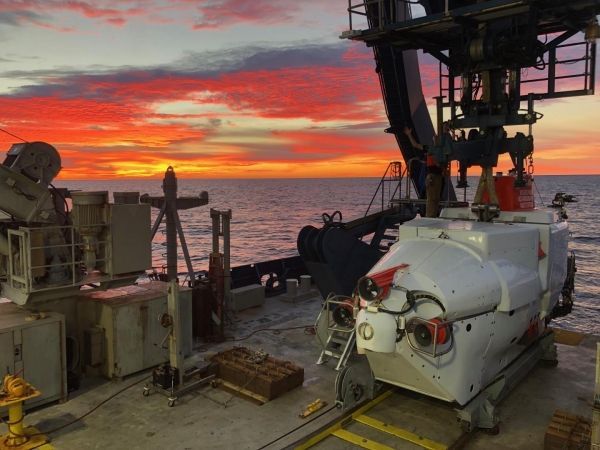Scientists at The University of Texas at Austin’s Marine Science Institute have discovered nearly two dozen new types of microbes, many of which use hydrocarbons such as methane and butane as energy sources to survive and grow—meaning the newly identified bacteria might be helping to limit the concentrations of greenhouse gases in the atmosphere and might one day be useful for cleaning up oil spills.
In a paper published in Nature Communications this week, researchers documented extensive diversity in the microbial communities living in the extremely hot, deep-sea sediments located in the Guaymas Basin in the Gulf of California. The team uncovered new microbial species that are so genetically different from those that have been previously studied that they represent new branches in the tree of life. Many of these same species possess keen pollutant-eating powers, like other, previously identified microbes in the ocean and soil.
“This shows the deep oceans contain expansive unexplored biodiversity, and microscopic organisms there are capable of degrading oil and other harmful chemicals,” said assistant professor of marine science Brett Baker, the paper’s primary investigator. “Beneath the ocean floor huge reservoirs of hydrocarbon gases—including methane, propane, butane and others—exist now, and these microbes prevent greenhouse gases from being released into the atmosphere.”
The new study, representing the largest-ever genomic sampling of Guaymas Basin sediments, was co-authored by former UT postdoctoral researcher Nina Dombrowski and University of North Carolina professor Andreas P. Teske.
Read more at University of Texas at Austin
Image: The Alvin deep-sea submersible awaits another collection run in the Guaymas Basin in November 2018. (Credit: Brett Baker/University of Texas at Austin)


